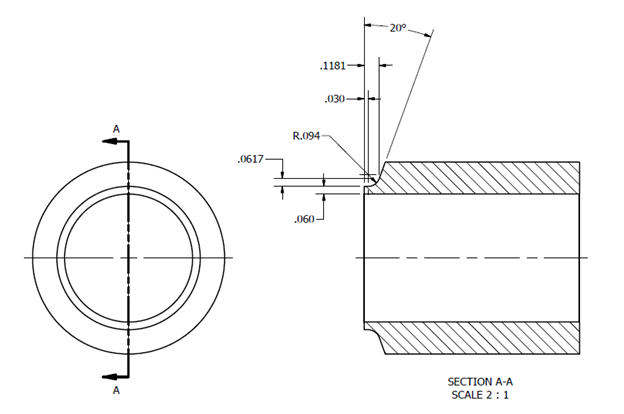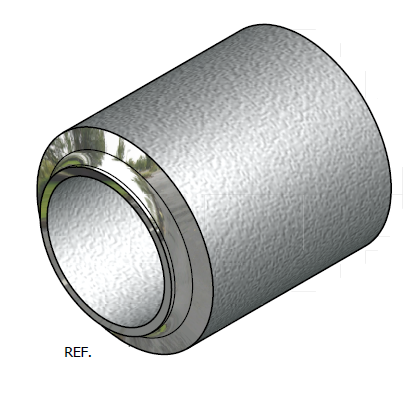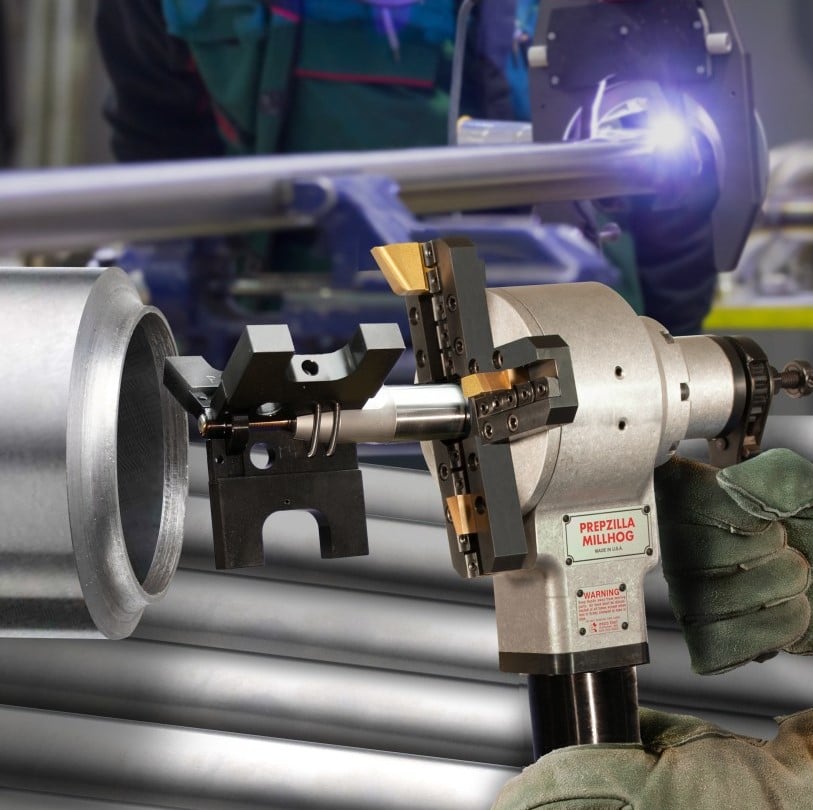Bevels or “preps” are used to remove material on thick-walled applications before the welding process. In orbital welding, the most common is the J bevel, otherwise known as the J prep.
Why Bevel Pipe for Welding?
Typically, pipe has thicker walls than tube. A singular fusion weld cannot fully penetrate the material – resulting in a failed weld. To combat this, material is removed, and filler wire is added through multiple weld passes – bonding the two pieces and creating a uniform weld joint.
Which Bevel Works Best for My Application?
Hand Welding: The V bevel is the most common bevel when it comes to hand welding. Many times, welders leave a 3/16" or greater gap between the weld joint. The V Bevel is typically defined as a 37.5 degree on both sides of the weld joint with a gap ranging from 1/8" to 3/16" depending on many variables. This joint configuration gives welders the optimal ability to perform a successful weld. Prepping both sides also gives the welder better vision of the weld joint.
Orbital Welding: When using an orbital welding machine, the J Bevel (also known as a U joint) is utilized as it gives the operator a clean, consistent and easily penetrated root. This is due to the J prep being around .060" at the root face with a 3/16" radius to a 20-25 degree bevel angle. This joint geometry brings the root face out. (See Diagram Below)


Unlike the typical V prep, the J prep does not have a weld gap during fit up. Instead, it is fitted butt to butt. When butted up to another pipe with a J prep, the root is fusion welded with or without filler metal. Then, the orbital machine easily fills the remaining joint. The weld head’s AGC (Arc Gap Control) performs better and more easily on the J bevel as the tungsten oscillates (moves back and forth) across the weld joint and climbs the sidewall of the pipe.
NOTE: An orbital weld is only as good as the prep. Counterboring can be conducted to even out the surface of the inside wall. Counterboring takes material away from the ID (inside) of the pipe to better match the face or land (butt to butt) of the weld joint. Consistency with your bevels leads to better fit-up which leads to better welds.
Special Applications: Most fittings are pre-prepped with V bevels. So, when creating pipe to fitting welds, J prep to V prep is a very common joint. This can be successfully welded with the right orbital welding equipment and training.
At MIT, we can create custom solutions for unique requirements or needs. Our equipment can produce a variety of preps, including several not mentioned required in various applications. Call us to discuss any unique application solutions.
How Do I Create a J Bevel?
ESCO Tools are the easiest, most accurate way to achieve a machine quality prep with a milling motor. All the Millhog line of ESCO tools can achieve the J bevel with a land. Picking the appropriate ESCO tool is solely based on the OD and Wall Thickness of the pipe you are prepping and welding. Talk to your representative to see which tool would be best for your process piping application.
The corresponding beveling bits used for a J bevel would be the MJB, MBB, and MLB blades. They also offer a "Magnatech J Bevel Blade" that is designed to meet Magnatech orbital welding equipment’s J bevel requirements.

If you have any questions about the proper bevel or beveling equipment for your unique piping application, please contact us to speak to a specialist.
Dec 28, 2020 12:00:00 AM

-1.png?width=520&height=294&name=Untitled%20design%20(7)-1.png)


.png)
Comments